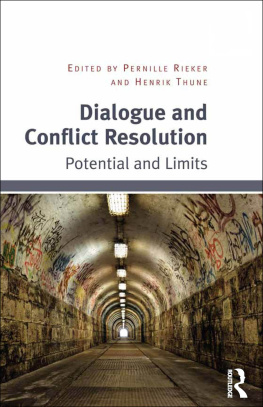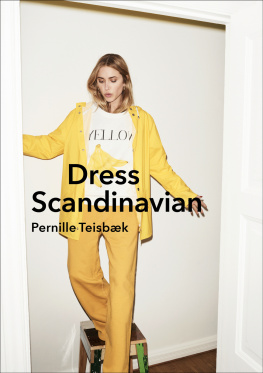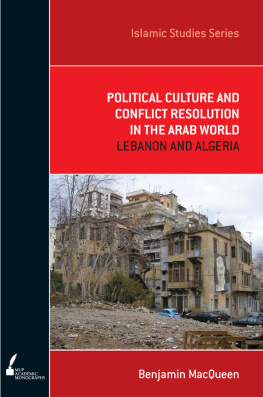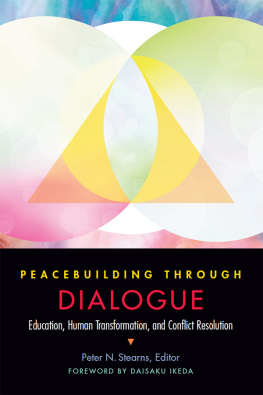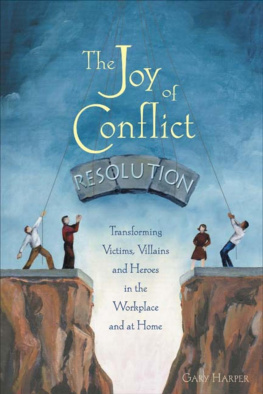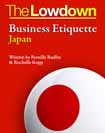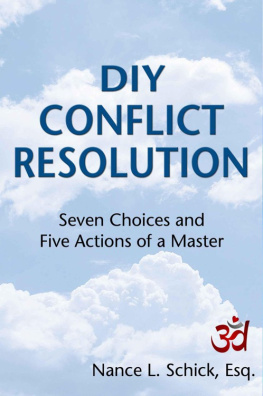First published 2015 by Ashgate Publishing
Published 2016 by Routledge
2 Park Square, Milton Park, Abingdon, Oxon OX14 4RN
711 Third Avenue, New York, NY 10017, USA
Routledge is an imprint of the Taylor & Francis Group, an informa business
Copyright Pernille Rieker and Henrik Thune 2015
Pernille Rieker and Henrik Thune have asserted their right under the Copyright, Designs and Patents Act, 1988, to be identified as the editors of this work.
All rights reserved. No part of this book may be reprinted or reproduced or utilised in any form or by any electronic, mechanical, or other means, now known or hereafter invented, including photocopying and recording, or in any information storage or retrieval system, without permission in writing from the publishers.
Notice:
Product or corporate names may be trademarks or registered trademarks, and are used only for identification and explanation without intent to infringe.
British Library Cataloguing in Publication Data
A catalogue record for this book is available from the British Library.
The Library of Congress has been applied for
ISBN 9781472438836 (hbk)
ISBN 9781315576961 (ebk-PDF)
ISBN 9781317151449 (ebk-ePUB)
List of Contributors
John Ashworth has worked continuously with the churches in Sudan and South Sudan ever since 1983 in a range of fields, focusing for the past 15 years or so on peace and reconciliation. He is a Fellow of the Rift Valley Institute and has been a Visiting Scholar at the Kroc Institute, University of Notre Dame, but sees himself primarily as a practitioner and not an academic. Ashworths most recent book: The Voice of the Voiceless: The Role of the Church in the Sudanese Civil War 19832005 (Nairobi: Paulines Publications Africa, 2014).
Mlfrid Braut-Hegghammer is Assistant Professor at the Norwegian Defence University College and MacArthur Junior Faculty Fellow at the Center for International Security and Cooperation, Stanford University. She completed her doctoral dissertation at the London School of Economics in 2010, which focused on the nuclear programs in Iraq and Libya. She has been a pre- and post-doctoral fellow at the Belfer center, Harvard University (200810), and a Stanton Junior Faculty Fellow at Stanford University (201213). She has published scholarly articles in International Security, The Middle East Journal, and The Nonproliferation Review.
Georges Fahmi is an El Erian Fellow at the Carnegie Middle East Center in Lebanon. He holds a doctoral degree from the European University Institute in Italy (June 2013). Fahmi obtained both his Bachelor and Master degrees from Cairo University, Department of Political Science. His research interests include religionstate relations in the Middle East, democratization, and religious movements.
Jakub M. Godzimirski holds a PhD in social anthropology from the Polish Academy of Sciences and Letters (1987) and an MA in social/cultural anthropology from the University of Warsaw (1981). In 1995 he joined Norwegian Institute of International Affairs (NUPI), where his main areas of research have been Russian foreign and security policy, energy policy and developments in the post-Soviet space and in Central and Eastern Europe. Godzimirski has conducted several studies on Russian foreign and security policies focusing on the role of Russia in post-Soviet conflicts (Crimea, Chechnya, Georgia, Abkhazia, South Ossetia, Moldova and Transdniester), Russias relations with other actors (OSCE, NATO) and on Russian energy policy. He has published on political and social transition in Central and Eastern Europe, energy security, and issues related to migration and diaspora.
Sverre Lodgaard served as director of the Peace Research Institute in Oslo (PRIO) 198692, the United Nations Institute for Disarmament Research (UNIDIR) 199296, and the Norwegian Institute of International Affairs (NUPI) 19972007, and is now senior research fellow at NUPI and associate fellow of the Today Institute for Global Peace and Policy Research, Hawaii. He is engaged in projects on nuclear disarmament/non-proliferation and European security, and chairs a Middle East working group on the Arab Spring, Turkey and Iran. Lodgaards most recent book is Nuclear Disarmament and Non-Proliferation (Routledge, 2011).
Frida Nome is a doctoral candidate at the Norwegian School of Theology and a researcher at NUPI. She has studied Arabic at a Palestinian university, and has worked with the international observer corps in Hebron and for the Norwegian Embassy in Damascus. Nome has been active as a researcher since 2005, basing most of her academic work on fieldwork in Syria, Lebanon, Israel, Palestine, Turkey and Iran, and has written extensively on topics related to the MENA region. She also served as a senior advisor to the Norwegian Foreign Ministrys Section for Peace and Reconciliation, August 2009August 2011.
Pernille Rieker is a Senior Researcher at NUPI, and holds a doctoral degree from 2004 from the University of Oslo. Her research interests are related to international security, European integration, regional security and external governance as well as national foreign and security policy with a special focus on the Nordic countries and France. From 2005 to 2009 Rieker headed the Department off International Politics at NUPI. She has also worked as a senior advisor at NordForsk (200910). She has published several books and scholarly articles in European Security, Journal of Integration, and Security Dialogue.
Michael Semple is a Visiting Professor at the Institute for the Study of Conflict Transformation and Social Justice, Queens University Belfast. He conducts research on conflict transformation and the role of non-state armed actors, with a focus on the Taliban movements of Afghanistan and Pakistan. Semple has extensive experience of Track One and Track Two dialogues in successive stages of the Afghan conflict. He has served in Afghanistan as a political officer with the UN mission and as deputy to the EU Special Representative.
Ole Jacob Sending is Research Director at NUPI. His research focuses on global governance, with a particular focus on the role of international organizations and non-governmental organizations in conflict and emergency settings. Current projects include studies of humanitarianism and armed violence in urban settings, and the dynamics of recognition within transnational policy networks. A two-time Fulbright Award recipient, Sending has been visiting scholar at Stanford University (2002) and at UC Berkeley (2008/2009). He served as a senior adviser in the Policy Analysis Unit in the Norwegian Ministry of Foreign Affairs from 2006 to 2008. His work has been published,


